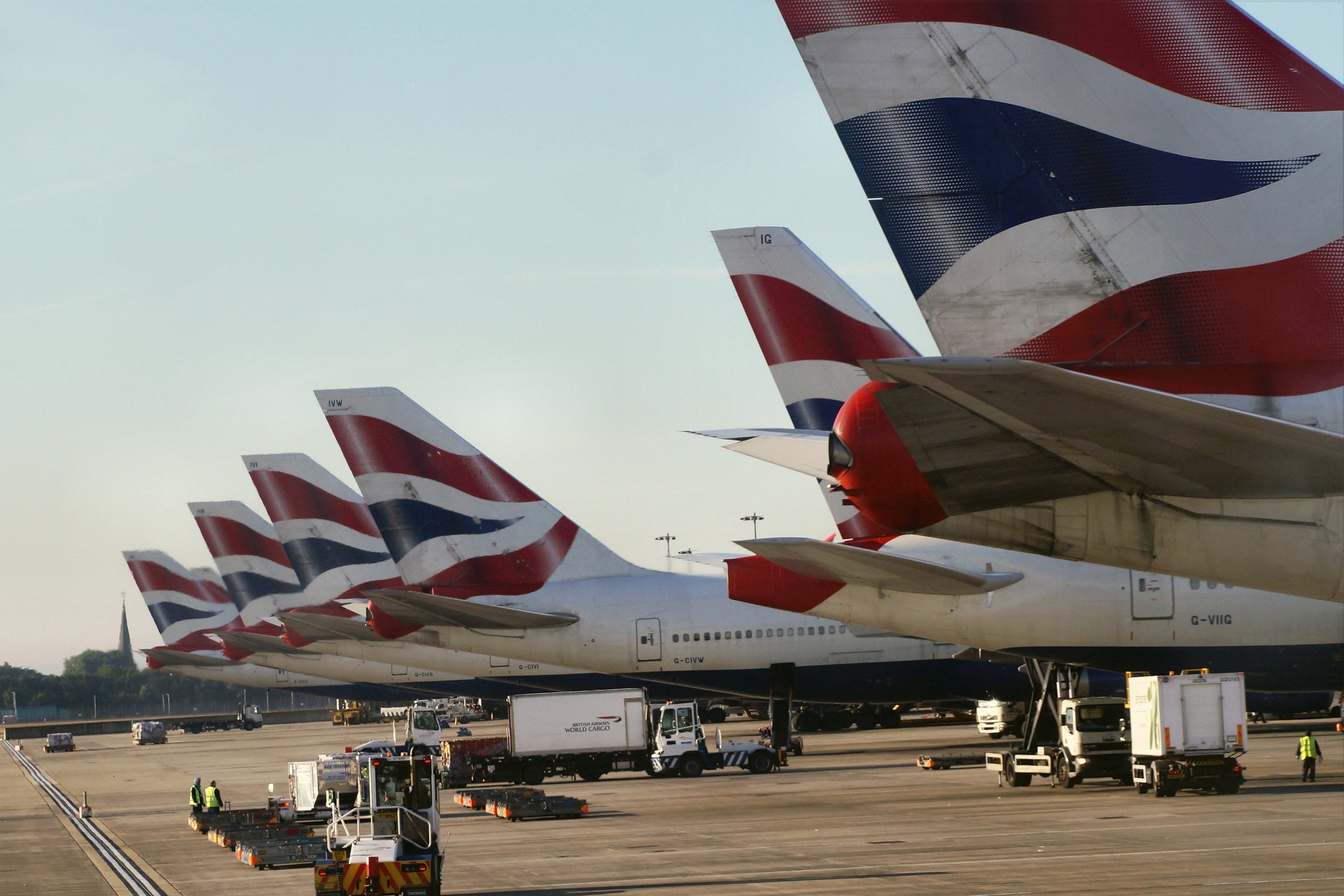The losers of the British Airways pilots' strike are passengers – and the airline
The Man Who Pays His Way: The airline pressed the big button marked ‘strike emails’ and dispatched cancellation messages by the gigabyte

Your support helps us to tell the story
From reproductive rights to climate change to Big Tech, The Independent is on the ground when the story is developing. Whether it's investigating the financials of Elon Musk's pro-Trump PAC or producing our latest documentary, 'The A Word', which shines a light on the American women fighting for reproductive rights, we know how important it is to parse out the facts from the messaging.
At such a critical moment in US history, we need reporters on the ground. Your donation allows us to keep sending journalists to speak to both sides of the story.
The Independent is trusted by Americans across the entire political spectrum. And unlike many other quality news outlets, we choose not to lock Americans out of our reporting and analysis with paywalls. We believe quality journalism should be available to everyone, paid for by those who can afford it.
Your support makes all the difference.British Airways pilots want more money. The airline is offering captains and first officers a pay increase worth 11.5 per cent over three years, which it describes as “very fair”.
The British Airline Pilots’ Association (Balpa) does not think it is good enough, in view of the contribution they make to the airline’s immense profitability. The general secretary, Brian Strutton, told me: “If the public understood the financial sacrifices that pilots made in BA’s lean years, including pay cuts and loss of terms and conditions, they might recognise that the gap between us, of less than 0.5 per cent of BA’s profit, is not unreasonable.”
Three out of four of the pilots based at Heathrow and Gatwick voted to strike. BA made two legal attempts to have the ballot ruled unlawful, but when they failed the airline prepared for a stoppage.
Managers worked out how many flights might be able to operate with non-striking pilots. Deals for “wet-leased” planes (hired complete with crew) from other airlines were set up. And BA leaned on partner airlines to use bigger planes to help carry more of its passengers.
BA also prepared the message it would send out to passengers whose flights were grounded.
That should have been the easiest of tasks. The European air passengers’ rights rules have been on the statute for 15 years and are perfectly clear about BA’s obligations.
In the admittedly unlikely event that I had been asked to draft the email, it would go like this: “Your flight has been cancelled, but don’t worry: we are doing all we can to minimise the inconvenience for you.
“You can have a full refund or take a later British Airways flight (in which case we’ll book and pay for a hotel for you). But we recognise that what you probably need is a flight on a different airline as close to the original departure time as possible.
“So we will secure you a seat on the best available alternative flight, which for the vast majority of passengers will be on the same day.”
Last Friday, Balpa announced a series of September strikes. The timing was calculated to cause maximum embarrassment to BA on the eve of its 100th birthday weekend, and the walk-outs on 9, 10 and 27 September are intended to cause maximum trauma for its passengers.
BA called the action “unjustifiable” and said: “It is completely unacceptable that Balpa is destroying the travel plans of tens of thousands of our customers.”
In fact, I calculate the walk-outs will affect far more people than that: up to half a million travellers, not just on the strike dates, but on several days on either side because of the complexities of rosters.
British Airways brought in extra staff for its call centre and social media teams, pressed the big button marked “strike emails” and dispatched cancellation messages by the gigabyte – unfortunately, as it turned out, adding in many thousands of passengers whose flights had not been grounded.
That should not have mattered. With the basic upfront message, “Relax, we’ll sort out an alternative flight for you,” no one would have felt it necessary to spend three hours on hold to the call centre.
Except that the BA email neglected to mention the option of a flight on a rival airline, instead merely offering a choice between a refund and rebooking.
Over the weekend I lobbied the airline to make clear its obligation to use other airlines. Eventually, on Tuesday, an online change was made. But then it turned out that BA would not book seats on the three big budget airlines serving the UK: easyJet, Jet2 and Ryanair.
As thousands of easyJet passengers will testify, after their flights this summer were abruptly cancelled and they were abandoned at the airport, other airlines avoid their obligations under European air passengers’ rights rules now and again. But BA takes the practice to a new level.
Is British Airways wisely doing what it can to minimise the impact of a strike intended to cause severe financial damage, or displaying corporate arrogance by ignoring the long-established rules on passenger care?
The traveller will decide.
Join our commenting forum
Join thought-provoking conversations, follow other Independent readers and see their replies
Comments